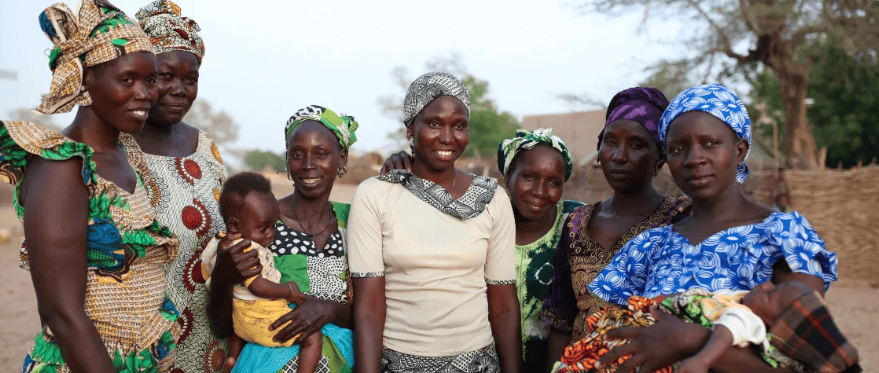Young people around the world are deeply concerned with the current state and prospects for women, children and adolescent health. We see that stagnant progress and multiple global crises are threatening the health, rights and opportunities of millions of women, children and adolescents in the world’s poorest countries.
More than 60 countries are now off track to meet the Sustainable Development Goals (SDG) health targets for maternal, newborn, and stillborn mortality by 2030. This is simply unacceptable.
Expanding affordable and equitable access to for women, children and adolescents can not only save lives. It can empower communities, catalyze opportunities for women and girls, boost growth and reignite progress toward the SDGs. Here are four ways young people are pushing for changes to address these issues globally.
1. Advocating for more investment in the health of women, children and adolescents
Investing in the health and rights for women, children and adolescents is one of the best investments societies can make. While there has been some attention to this issue among policy makers globally, more can be done to accelerate investment for this agenda.
Our organization, PoliPoli, is among the youth groups working to increase awareness of this important issue. We believe the international community needs to step up investments in the health and rights of women, children and adolescents. It’s about investing in the future; it’s about investing in hope, it’s about paving a way to peace and prosperity.
We have engaged with global partners, such as the Global Financing Facility for Women, Children and Adolescents (GFF) to support a campaign to #DelivertheFuture for women, children and adolescents by expanding quality and affordable health care.
We have seen first-hand how prioritizing investment and political commitment can help achieve better health and nutrition outcomes for women, children and adolescents. For example, Indonesia reduced stunting from 30.8 percent in 2018 to 21.6 percent in 2022. In Rwanda, collective efforts by the government and development partners have resulted in more children under five being screened for malnutrition by community health workers.
We want to see more of these results around the world. It’s about investing in the future; it’s about investing in hope, it’s about paving a way to resilience and prosperity.
2. Engaging youth for social change
We firmly believe that young people are critical for driving transformational social change. Many youth groups in Japan and around the world believe that prioritizing women, children and adolescent health is the right thing to do. We are working together with these groups to support a growing movement that wants to bring more attention, better policies and more financing both domestically and internationally.
Young people can show our elected officials what matters for the next generation and that’s why we are working to connect youth voices with policymakers. The Reach Out Project – an advocacy accelerator platform that provides an intensive global health youth leadership program—is engaging aspiring future decision-makers, who are now ready and equipped to bring change in their communities.
3. Raising awareness and calling for action
Raising awareness about the issue and providing concrete evidence of the need to take urgent action can help drive policy towards the right direction. Together with a growing community of youth advocates we created a digital platform to help collect testimonials, exchange perspectives and engage in constructive dialogue with policy makers to jointly support concrete actions for women, children and adolescent health, rights and opportunities. For example, Famileaf, a digital maternal and child health startup, joined the Japan Center for International Exchange and Save The Children Japan to engage with policy makers to work with youth as a key partner in addressing health challenges at global, national and community levels.
4. Reaching partners across the world
Youth groups across G7 countries and beyond are also calling for increased investment and attention to this agenda. As Yuri Okura, Co-President at G7/20 Youth Japan points out, G7 countries should invest in building more equitable health systems and so should local governments. That’s why, as a member of Y7—the youth engagement group of the G7—Matsui and other people at the engagement groups have submitted a “Joint Statement Reigniting the 2030 Agenda: Achieving Gender Equality Now and For Future Generations” to the G7 Ministerial Meeting on Gender Equality and Women’s Empowerment held in Nikko, Japan, on June 24 to call on global leaders to take urgent action. G7 countries under Japan’s leadership have launched a transformative partnership for global health since 2000 and invested billions in support of UHC and gender equality.
Source : World Bank






